Unveiling the Natural Path to Chicken Health
Hey there, fellow chicken enthusiasts! If you’ve found your way here, chances are you’re as passionate about your feathered friends as we are. Today, we’re diving headfirst into a topic that every chicken owner should have in their back pocket: treating fowl cholera in chickens naturally.
Let’s face it, our chickens can face all sorts of health challenges, and fowl cholera is one of those pesky issues that can rear its ugly head. But fear not! In this guide, we’re going to explore the power of natural remedies, herbal magic, and time-tested methods to help your feathered pals bounce back to their clucking best.
So, whether you’re a seasoned chicken keeper or just starting your backyard flock, stick around. We’re about to embark on a journey to healthier, happier chickens, the natural way.
Also, Read>>>>The Advantage and Disadvantage of Raising Pheasants with Chicken and Best Practices To Follow
Understanding Fowl Cholera:
Decoding the Culprit Behind Chicken Woes
Alright, folks, before we roll up our sleeves and delve into the world of natural remedies, let’s get to the bottom of this fowl (pun intended) business called fowl cholera.
So, What Is Fowl Cholera, Anyway?
Fowl cholera isn’t some exotic chicken vacation destination; it’s a bacterial infection that can ruffle the feathers of your flock. At its heart, this ailment is caused by a sneaky bacterium called Pasteurella multocida. It has an affinity for your chickens and can lead to a range of symptoms, from listlessness and decreased egg production to respiratory distress and sudden deaths.
Identifying the Usual Suspects – Symptoms
Chickens aren’t great at telling us when they’re feeling under the weather, but they do drop hints. Keep an eye out for these common symptoms:
- Lethargy: Chickens that usually strut their stuff might start looking droopy and disinterested.
- Discharge: Nasal or ocular discharge can signal trouble.
- Reduced Appetite: If your feathered friends are suddenly turning their beaks up at mealtime, it’s cause for concern.
- Respiratory Issues: Coughing, sneezing, and wheezing are all red flags.
- Swollen Wattles and Combs: These usually vibrant red features might turn purple or bluish.
The Importance of Early Detection
Spotting fowl cholera early is like catching a cold before it turns into a full-blown flu—it’s easier to treat and can save your chickens a lot of discomfort. So, keep a watchful eye on your flock, especially if they’re exhibiting any of these symptoms.
Now that we’ve got the 411 on fowl cholera, let’s roll up our sleeves and explore some natural remedies to help your chickens fight this bacterial baddie.
Natural Remedies for Fowl Cholera:
Mother Nature’s Healing Touch
Okay, folks, it’s time to get down to the nitty-gritty of treating fowl cholera naturally. Mother Nature has quite the pharmacy stocked with remedies, and we’re about to tap into it to help our feathered friends get back on their feet.
1. Garlic and Onions – The Dynamic Duo
These kitchen staples are more than just flavor enhancers; they’re natural antibiotics with potent antibacterial properties. Crush a few garlic cloves or dice up some onions and mix them into your chickens’ feed. It’s like giving them a tasty, health-boosting salad.
2. Echinacea – The Immune Booster
Echinacea isn’t just for humans; chickens can benefit from its immune-boosting properties too. You can add dried echinacea to their food or brew a mild tea using echinacea root, allowing your chickens to sip their way to better health.
3. Apple Cider Vinegar – The All-Purpose Tonic
Apple cider vinegar is a poultry panacea. It helps maintain a balanced pH in their digestive system, making it harder for bacteria to thrive. Mix a tablespoon or two in their water, and you’ve got a daily health tonic.
4. Oregano Oil – The Natural Antibiotic
Oregano isn’t just for pizza; it’s a powerful natural antibiotic for chickens. A few drops of oregano oil in their water or added to their feed can work wonders.
5. Probiotics – The Gut’s Best Friend
Probiotics help maintain a healthy gut flora, which is essential for a chicken’s overall well-being. You can find poultry-specific probiotics at your local farm supply store. Just sprinkle it in their feed.
Remember, while these natural remedies are fantastic, they’re not a one-size-fits-all solution. Always consult with a veterinarian if you suspect fowl cholera in your flock, especially for severe cases. These remedies can be used as part of a holistic approach to chicken health, but they should complement professional advice.
Now that we’ve got the tools from Mother Nature, it’s time to put them to good use with a step-by-step treatment plan. Stay tuned!
Also, Read>>>>The Advantage and Disadvantage of Raising Pheasants with Chicken and Best Practices To Follow
Step-by-Step Treatment Process:
Nurturing Your Chickens Back to Health
Alright, fellow chicken caretakers, now that we’ve stocked our natural remedy toolkit, let’s get practical. It’s time to roll up our sleeves and dive into the step-by-step process of treating fowl cholera in your feathered companions naturally.
1. Diagnosis: The Key to Effective Treatment
- Before you start any treatment, make sure you’re dealing with fowl cholera. Consult a veterinarian for a proper diagnosis. Quick and accurate identification is essential.
2. Quarantine Sick Birds
- Isolate infected chickens from the healthy ones. This helps prevent the spread of the disease within your flock.
3. Cleanliness Is Next to Chickenliness
- Ensure clean, dry, and well-ventilated living conditions for your chickens. A clean coop is a happy coop.
- Regularly clean and disinfect water and feed containers to minimize bacterial growth.
4. Herbal Remedies
- Incorporate natural remedies into your chickens’ diet as discussed earlier. Garlic, onions, echinacea, oregano oil, and apple cider vinegar are your go-to options.
5. Hydration is Vital
- Sick chickens often become dehydrated. Make sure they have access to clean, fresh water at all times. You can add electrolytes to their water to help with hydration.
6. Rest and TLC
- Like humans, chickens need rest and care when they’re unwell. Reduce stress factors, keep them warm, and provide a calm environment.
7. Monitor Progress
- Keep a close eye on your sick chickens. Are they showing improvement or worsening symptoms? Adjust your treatment plan accordingly and consult your vet if needed.
8. Patience is a Virtue
- Natural remedies may take some time to show results. Be patient and consistent with your treatment.
9. Preventive Measures
- Once your chickens have recovered, focus on preventing future outbreaks. Maintain good hygiene, provide a balanced diet, and consider vaccination if recommended by your vet.
Remember, treating fowl cholera naturally is a process, not a quick fix. It requires dedication and a watchful eye on your feathered friends. If you ever feel uncertain or if the symptoms worsen, don’t hesitate to seek professional veterinary guidance. Your chickens will thank you for the extra care and attention as they cluck their way back to health!
Preventing Fowl Cholera:
Fortifying Your Flock’s Defenses
Now that we’ve covered the ins and outs of treating fowl cholera naturally, it’s time to talk about the best offense: prevention. After all, an ounce of prevention is worth a pound of cure, especially when it comes to keeping your feathered friends in tip-top shape. Let’s dive into some key strategies for preventing fowl cholera in your chicken flock.
1. Cleanliness Is Cluckiness
- Maintain a clean coop: Regularly clean out bedding and remove droppings to minimize bacterial buildup.
- Disinfect water and feeding containers to prevent contamination.
2. Isolate New Additions
- Whenever you introduce new chickens to your flock, isolate them for a few weeks before integrating them. This quarantine period helps ensure they aren’t carrying any diseases.
3. Proper Ventilation
- Good airflow in the coop is essential. Proper ventilation reduces moisture buildup, which can harbor bacteria.
4. Healthy Diet
- Feed your chickens a balanced and nutritious diet. A well-fed chicken is more likely to have a robust immune system.
- Provide clean, fresh water at all times.
5. Vaccination
- Consult with a poultry veterinarian about the possibility of vaccinating your chickens against fowl cholera. This can be a powerful preventive measure.
6. Stress Management
- Minimize stressors in your chicken’s environment. Avoid overcrowding and ensure they have enough space to move around comfortably.
- Handle your chickens gently and avoid unnecessary disturbances.
7. Biosecurity
- Limit visitors to your coop and make sure they follow proper hygiene protocols.
- Change into clean clothes and shoes before entering the coop area, especially if you’ve been near other poultry.
8. Regular Health Checks
- Keep a close eye on your chickens’ health. Early detection of any issues can prevent outbreaks.
9. Educate Yourself
- Continuously educate yourself about chicken health. Knowledge is your best weapon against diseases like fowl cholera.
By incorporating these preventive measures into your chicken-keeping routine, you can significantly reduce the risk of fowl cholera and other poultry diseases. Remember, a healthy flock is a happy flock, and your feathered friends will thank you for the extra care and attention. Happy clucking!
Also, Read>>>>The Advantage and Disadvantage of Raising Pheasants with Chicken and Best Practices To Follow
Conclusion:
Your Feathered Friends, Your Natural Journey
And there you have it, folks—our journey into the world of treating and preventing fowl cholera naturally has come to an end. We’ve learned how to identify the sneaky signs, explored the healing wonders of Mother Nature’s remedies, and mapped out a step-by-step treatment plan.
But perhaps even more importantly, we’ve discussed the power of prevention. As responsible chicken keepers, it’s up to us to create an environment where our feathered companions can thrive. Whether you’re raising chickens for their eggs, meat, or simply as lovable pets, their health and well-being should always be a top priority.
By embracing cleanliness, providing a balanced diet, considering vaccination, and practicing good biosecurity, you’re not just safeguarding your flock against fowl cholera; you’re ensuring they live their clucking best lives.
Remember, every chicken has its own personality, and they rely on you to be their guardian. So, as you continue on your journey with your feathered friends, stay curious, stay vigilant, and stay compassionate. Your chickens will repay your care with colorful eggs, hearty clucks, and a whole lot of feathery love.
Thank you for joining us on this natural path to chicken health. Here’s to happy, healthy, and clucking wonderful days ahead in your coop!
Also, Read>>>>The Advantage and Disadvantage of Raising Pheasants with Chicken and Best Practices To Follow


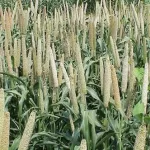
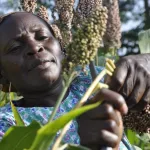

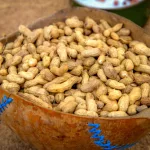




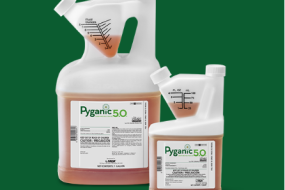
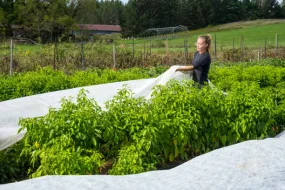
2 replies on “A Step-by-Step Guide on How To Prevent and Treat Fowl Cholera in Chickens Naturally”
[…] Also, Read >>>> A Step-by-Step Guide on How To Prevent and Treat Fowl Cholera in Chickens Naturally […]
[…] Also, Read>>>>>> A Step-by-Step Guide on How To Prevent and Treat Fowl Cholera in Chickens Naturally […]